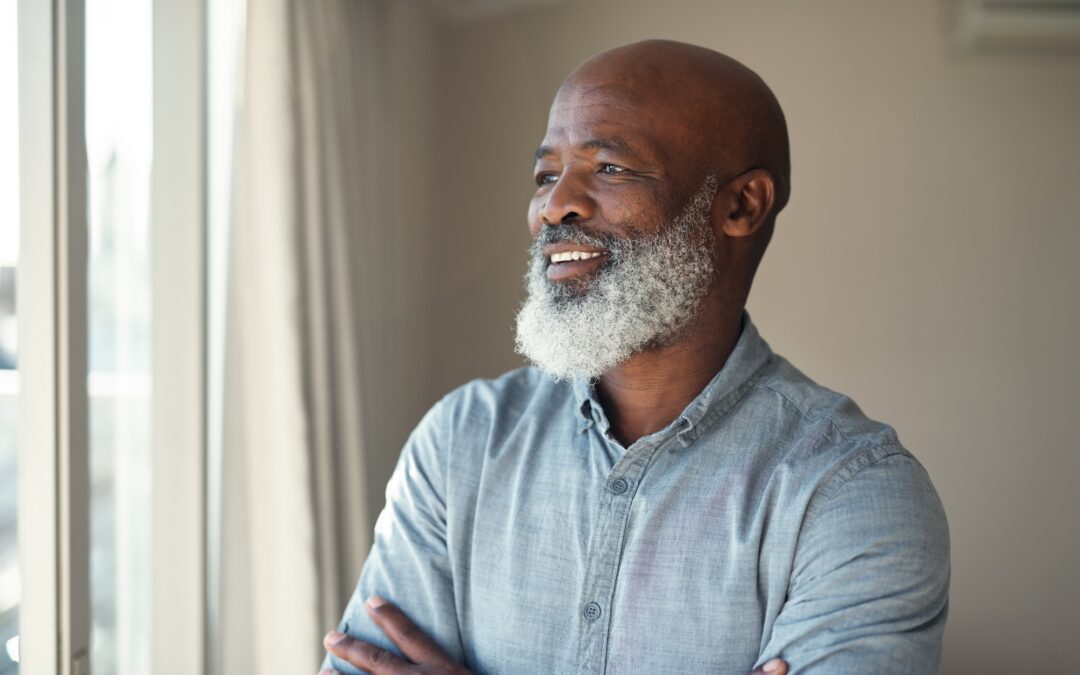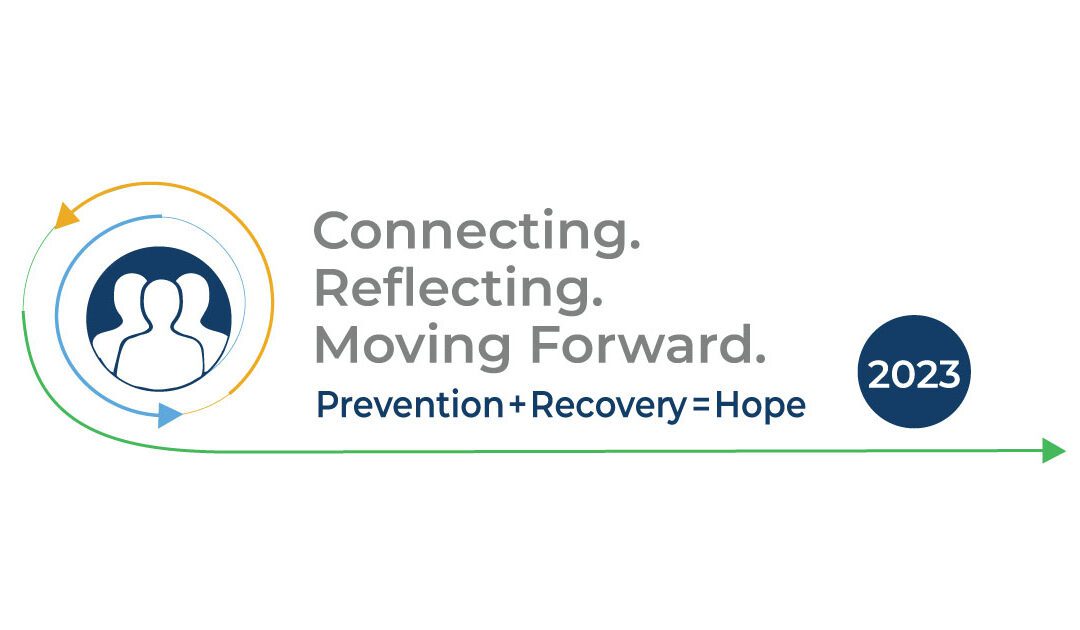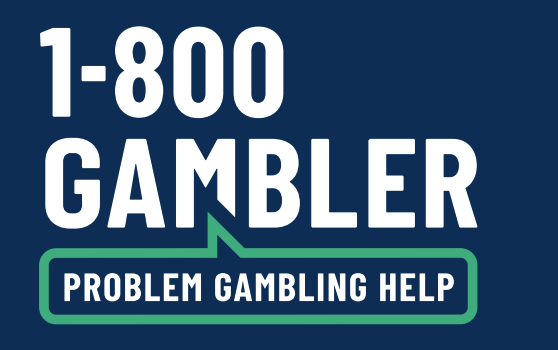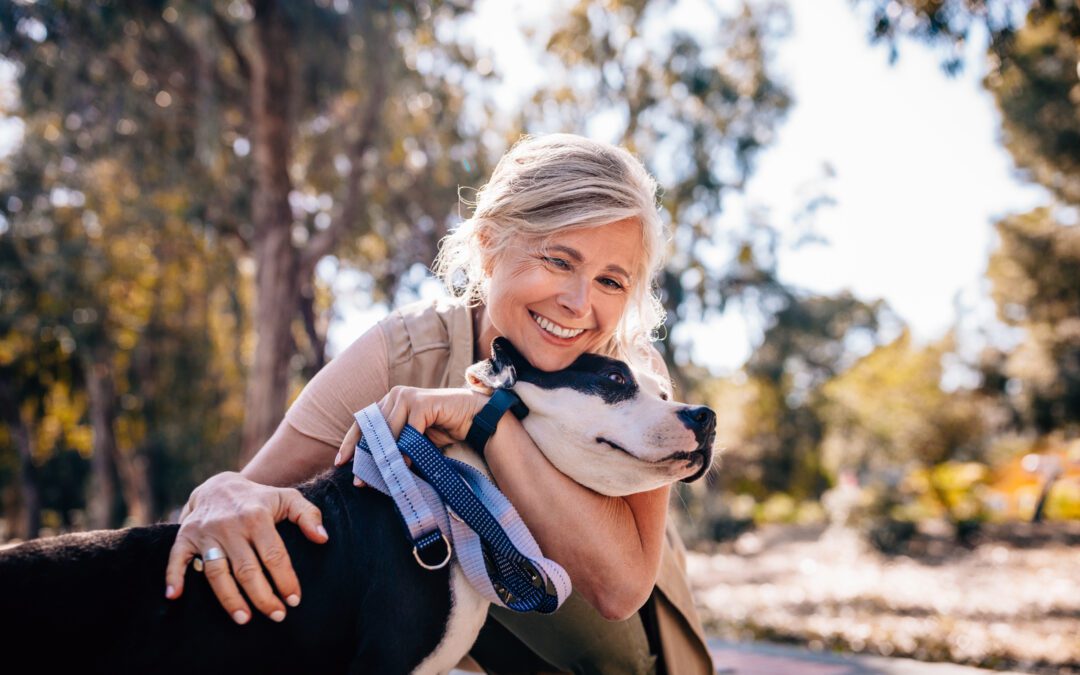
Aug 14, 2023 | RECOVERY
The first time someone suggested I might have a gambling problem was in high school. Before I went on a casino trip that I won at an auction, my football coach pulled me aside. He told me to be careful with my gambling, to think about what I was going to do.
Looking back on it, I think it was really insightful for someone in the 1990s to realize that someone might have a gambling problem. Unfortunately, I ignored his advice.
I started gambling at a young age. By the time I was 10, I participated in church-related activities, including cake walks, nickel rolls and games of chance. I also played my share of Bingo.
I grew up at a time when casinos were just getting started in Minnesota, and I often went and gambled there although I was under age.
When I wanted to gamble, I would do whatever it took to get the high. This could be gambling in a casino, playing the lottery or playing cards. I bet on hockey games and would even bet with friends on how many times an elevator would stop at a floor. Everything in my life involved gambling and games of chance.
The first time I sought help for my gambling was around 2007, when I went to Project Turnabout. I didn’t finish treatment, but going there was an eye opener. They told me I was a compulsive gambler, an alcoholic and a drug addict. I didn’t want to hear any of it, so I left. But I did take something from it.
For the next 10 years, I still gambled, though I had bouts of being gambling-free. I was in and out of GA meetings.
I suppose if there were a turning point, it might have been in 2017 when a little old lady pulled me aside at a GA meeting. She was probably frustrated because I still gambled some. I remember she told me three things: 1. “You’re going to make it,” 2. “Whatever you do for the next 12 months, don’t gamble,” and 3. “Keep going to the meetings.”
I found that I took a natural bond to her and what she said. I built a trusting relationship with her. If someone else told me the same thing, it might not have stuck.
I now work as a treatment coordinator. At some point, I hope to work strictly with people who have gambling problems. I thought I would be a special education teacher but I became fascinated with the social services aspect. I feel I can help people in a different way and engage them in conversations about recovery.
My advice to people struggling with gambling is to go and check out many meetings. You will find one that feels right, and when you do, treasure it. Stay in the present moment as long and often as you can, get humble and be teachable.

Aug 14, 2023 | ABOUT MNAPG, PROBLEM GAMBLING, PROFESSIONALS, RECOVERY
The gambling landscape continues to shift with rapid expansion and responses to regulations that seem insufficient. Those working in prevention, treatment and research need to understand and be responsive to these changes.
The MNAPG conference will feature presenters from across the country and Canada sharing their perspectives as clinicians, financial advisors, people in recovery and researchers. It will be a great way to network with others committed to minimizing the harms caused by gambling disorder and to learn more about recent trends and new tools available for those who need help.
Who Should Attend?
The conference is appropriate for many people, including:
o Gambling, alcohol and drug addiction counselors and therapists
o Other health care and social service workers
o Law enforcement officers
o School and church leaders
o Lawyers and financial professionals
o People in recovery and their families
CEU credits are available from various Minnesota professional licensing boards.
Programs and Speakers
While conference details are still falling into place as of this writing, here are some of the programs and speakers that will be part of the conference:
o Resources and Tools for Financial Counseling in Gambling Disorder Treatment, presented by Cara Macksoud, CEO of Money Habitudes, and Alex De Marco, founder and CEO of MoneyStack, Inc. and GamFin.
o The All-In Podcast Comes to Minnesota!, presented by Brian Hatch, peer recovery specialist for Bettor Choice, and Jeff Wasserman, MPA, JD, ICGC-I, CPRS, judicial outreach and development director for the Delaware Council on Gambling Problems.
o Using Affordability Guidelines as a Tool for Player Protection Online in a North American Context, presented by Lia Nower, J.D., Ph.D., a distinguished professor and director of the Center for Gambling Studies at Rutgers University.
o Working with Clients and Gambling Harms: Why it Matters and How to Lower Resistance to Treatment, presented by Jay Robinson, JR Consulting, an internationally sought-after expert in the field of preventing and responding to gambling harms.
o The Public Health Impact of Sports Betting Expansion, presented by Dr. Timothy W. Fong, M.D., a Professor of Psychiatry at the Jane and Terry Semel Institute for Neuroscience and Human Behavior at UCLA.
What:
MNAPG annual conference
When:
Sept. 18
Where:
Hilton Minneapolis/Bloomington, 3900 American Blvd W., Bloomington, MN
Cost:
$30 (free to those in recovery)
Registration deadline: September 8
For More
Information:
mnapg.org/conference
Register and and learn more HERE.

May 12, 2023 | RECOVERY, RESOURCES
Years in the making, NCPG has recently leased 1-800-GAMBLER as the new nationwide helpline number. With the significant increase in sports betting, it makes sense to use one number in the often-small amount of advertising space. While some states mandate that their own state helpline be included in any advertising that crosses their borders, Minnesota does not mandate the exclusive use of 1-800-333-HOPE. MNAPG agrees with this approach for sports betting. MNAPG will continue to use the Minnesota helpline number in its brochures and in-state only ads. Either way, the caller will be directed to the Minnesota vendor who handles the helpline. Until Minnesota decides to discontinue the HOPE number, MNAPG will support use of both numbers.

Feb 8, 2023 | PROBLEM GAMBLING, RECOVERY
When you find yourself up at 2 a.m. betting on Chinese league basketball games, something you know nothing about, you have to realize that maybe you’ve got a gambling problem.
My relationship with gambling started when I was young. I remember playing cards with my uncle when I was nine or ten years old. At that time, poker was all over television, with ESPN broadcasting various poker tours. I found a website where I could play online for practice, and I spent many hours doing that.
By the time I was 14, I was staying up until four or five in the morning playing poker with my parent’s credit cards. My gambling progressed, and when I moved out on my own, I thought that maybe I could gamble all the time.
But by the time I was 18, I ended up in Gamblers Anonymous (GA). It was at a church and there were only two people there. At the time, it didn’t feel like the place for me. I had a full college scholarship for chess and figured I’d grow out of gambling. Unfortunately, I only lasted three months in college, and when I lost my scholarship, I lost some of my identity. I continued to gamble and also found substances as a way to try to keep gambling away.
There was a lot of pain and suffering between age 19 and 25. Although I visited GA again in 2013, I was very stubborn and didn’t stick with it. I got sober when I was 25 but didn’t give up gambling. By that time my income was substantially higher and my bets were larger. I also got involved in illegal activities to sustain my gambling.
In 2021, I had a substantial win and thought that would change everything. But, of course, it didn’t. I found myself sick and tired of being sick and tired. This time, my involvement with GA feels different. I’m more committed, have sponsors, chair meetings and go every week. While treatment centers may work for some (I went to the Vanguard Center for Gambling Recovery in Granite Falls as well as to a gambling treatment center in Florida), I’ve found that GA works best for me.
It’s now been eight months since I gambled. I’m very happy now. I have a great job and great friends. I’m back together with my girlfriend, who has been through a lot with me.
As someone who got into heroin at one point, I can honestly say that the high from gambling was greater than that of heroin. It is the hardest of the addictions. It’s easier to lie
to think you can win something. With drugs and alcohol, you won’t win anything, but with gambling, you can trick yourself.
To those who are struggling with gambling and wondering what to do, I would say this. Nobody accidentally finds their way into a GA meeting. If you think you’re having an issue, you more than likely do. But there’s help out there. There are a lot of different meetings and a lot of people are willing to help you. The environment is very welcoming and nonjudgmental. I realize now that the age factor — my being younger than many in GA — was simply a copout.
But I do think there’s a need for more GA meetings focused on young people, particularly now there are likely more younger people gambling because of the easy access. It can be difficult when you look around and see that most of the other meeting attendees are older. For this reason, I’ve worked to create a “young persons” GA meeting. My hope is that it will help others like myself.

Oct 17, 2022 | PROBLEM GAMBLING, RECOVERY, RESOURCES
Needless to say, we live in a world where texting seems the preeminent form of communication. So why shouldn’t it play an important role in helping someone with a gambling problem.
Now, in Minnesota, it does. LifeWorks, which manages the Minnesota Problem Gambling Helpline, now offers a service called Encourage Me that consists of motivational text messaging.
Encourage Me motivational text messaging is offered to both gamblers and affected others in both English and Spanish. Messages are sent twice each week for three months and are tailored to fit into the client’s stage of change, as clients require a different type of information and support in each stage. The messages provide both information about gambling and problem gambling, encouragement to change, and tips and suggestions on how to make the changes they want to make.
“We realize that some people may just be thinking about changing, while others need maintenance during the recovery period,” says Ashley Trantham, Manager of Customer Success at LifeWorks. Motivational messaging is offered as a supplemental treatment tool and isn’t meant to be a substitute for counseling.
Here are some questions and answers about Encourage Me:
Why Texting?
· The program was developed using research from successful healthcare-related texting programs such as smoking cessation, weight loss, and medication management.
· Text messages have a 98% open rate vs. a 20% open rate for emails.
· Text messages can be opened at any time that is most convenient to the user.
· Available on almost every model of mobile phone.
· Provides a reminder that someone cares.
· Reminds the user that help is available.
Is it effective?
Yes! Outcome surveys are conducted at the conclusion of the texts and in the first year, 86% of survey responses indicated that receiving a text message every week helped keep them focused and working on their goals about gambling. Example comment: “I have not gambled since calling the helpline and found the text messages helpful for reinforcement, reminding me to focus on my goal of not gambling.”
Examples of texts
Contemplation: Consider changing your thoughts from “I have to stop gambling” to “I want to stop gambling”
Preparation: You have made significant progress by just acknowledging that gambling is no longer fun. You’re on the right path.
Action: Today is the day to be good to yourself. Take a walk, enjoy the warmth of the sun, or give yourself the gift of feeling good about managing your gambling.
Maintenance: Take the time to review and modify your goals and plans for recovering from problem gambling. Stay active in your recovery!
Can a person enroll more than once?
Yes
How do I enroll a client?
Clients are offered Encourage Me messages as a standard part of their call to the Problem Gambling Helpline. If your client has not yet enrolled, you can enroll them by calling the helpline together or recommending that they contact the Helpline themselves. Curious? You can call and sign yourself up, too!

Aug 10, 2022 | PROBLEM GAMBLING, RECOVERY, STORIES
I was exposed to a variety of games early in my life. Our family played Pokeno — which is how I learned to play cards — and spun dreidels, which was the first game I played that involved money. I won my first big pot at the age of five years old.
As I got a little older, I played poker and pinochle. I remember losing all my money in poker to my neighbors but then watching my father bail me out by winning it all back. I enjoyed the thrill of being a part of that.
I went to a casino for the first time at 21. I enjoyed it. Then, at about age 30, I met a man who also enjoyed gambling. We started playing Bingo a lot and pull tabs. I remember finding Bingo to be slow, so I played multiple cards and also pull tabs between games.
It was about this time when I started to become preoccupied with gambling. I began lying to myself and others about money. I lost a job directly because of errors in my work due to my gambling, which I sometimes did for 24-36 hours before work.
Eventually, I started attending GA meetings with my husband, but mainly to support him. I looked at the others and thought they had more problems than I did. There was a part of me that wanted to stop, but my desire to continue gambling was greater than my desire to not gamble.
I rationalized that gambling helped me when I was feeling depressed, as I would otherwise just stay home and sleep. I became suicidal, but since I only felt that way when I wasn’t gambling, I convinced myself that I should keep gambling.
Eventually, I realized that my gambling was a symptom of a deeper problem. Gambling was a part of keeping feelings down — guilt, shame, remorse, etc. I was doing things that were against my core principles, such as lying to dear friends, writing bad checks, losing jobs, more drinking and depression. I rationalized some of my behavior by thinking that I hadn’t gone to prison or killed anyone.
While I stopped gambling for periods of time, I couldn’t stop completely. My finances were in ruin and I was full of anger toward myself and my out-of-control behavior. Thanks to my fellow GA members, I was eventually hospitalized for a second time for depression and then went on to treatment for my gambling. The last time I gambled was on February 19, 2011.
I learned that you can find hope and meaning from the most unlikely of sources. In my gambling fog, I had neglected so many things, including my dog and my plants. While I was away, a friend cared for my house, including my plants. When I returned home, I saw that my tomato plant had somehow survived and was even sprouting new life; I refer to it as Lazarus the Tomato Plant. I took that as a sign that I was going to grow a new life as well.
I can’t believe all the positive things about my life. I’m proud of who I am today and the work I do with the GA program. In the past, I thought only of myself. Now I think of others and volunteer my talents whenever possible. I’ve grown personally. I challenge myself to do things that make me uncomfortable. I enjoy trying new things and taking new approaches in my life of recovery.
If people reading this are on the fence about whether to seek help, I would tell them to keep coming back. Although I was initially not working the GA program when I attended the meetings, they still helped me — the seeds eventually took. I would encourage others to hang on to the desire to stop gambling. It doesn’t have to be an armload of desire; it can be a smidgeon. The desire to stop gambling just has to be greater than the desire to gamble.
Page 3 of 6«12345...»Last »






